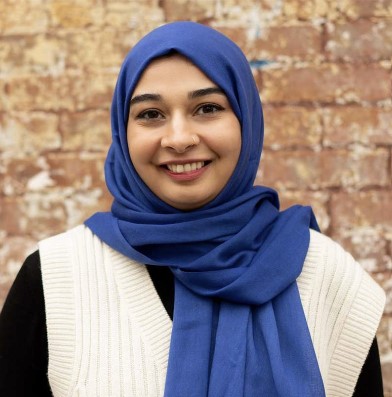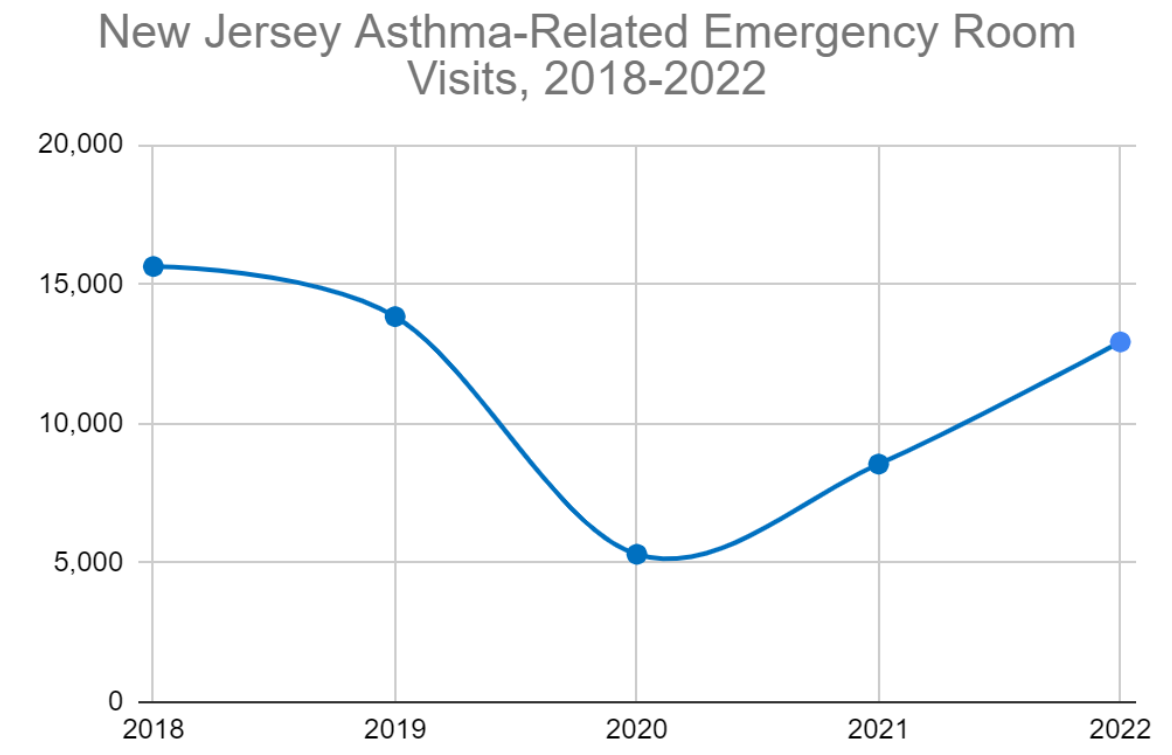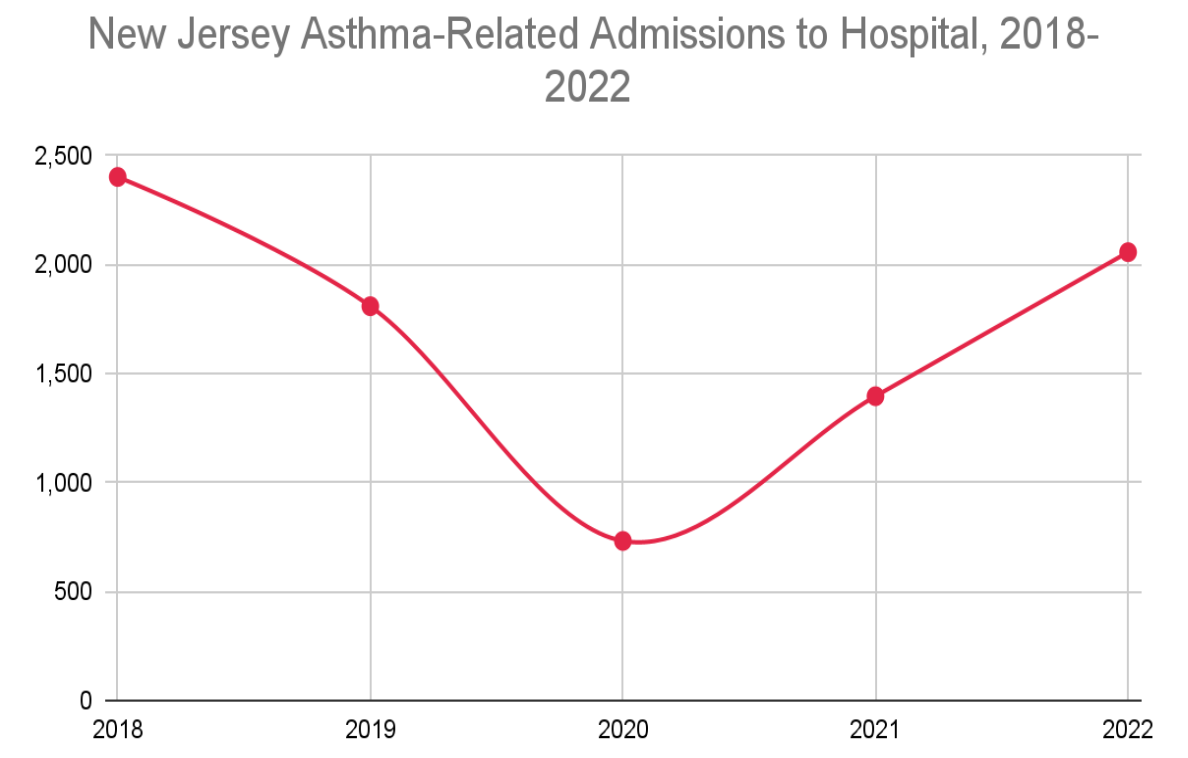Posted on November 4, 2024

By Alena Siddiqui
Data Analyst
For more information on this topic or kids count data, contact Alena at asiddiqui@acnj.org

Asthma is a disease that affects the lungs. Common asthma triggers are air pollution, secondhand smoke, physical exercise, and mold to name a few. Some common symptoms of asthma include shortness of breath, chest congestion, whistling or wheezing sound when breathing out, and frequent coughing.
In 2022, there were 12,929 asthma-related emergency room visits and 2,057 asthma-related admissions to the hospital among children aged 0-17 years old. The graphs below show that 2020 experienced a low number of both scenarios among children–most likely due to the COVID-19 pandemic. But both graphs continued to rise thereafter.


In 2022, Essex had almost 2,000 asthma-related ER visits and over 360 hospitalizations among children–the highest in the state. Other counties with high asthma-related ER visits and hospitalizations were Camden and Middlesex.
According to the CDC, in a classroom of 30 children, approximately three of them are likely to have asthma. Children who are minorities, low-income, and/or live in the inner city are more likely to have emergency department visits, hospitalizations, and deaths because of asthma than the rest of the population. Having a family history of asthma also increases the risk for individuals to be affected with asthma-related symptoms. Black, non-Hispanic children tend to make up the largest percentage of asthma-related ER visits compared to other race/ethnicity groups. In 2022, Black, non-Hispanic children comprised 34% of New Jersey’s asthma-related ER visits amongst children followed by Hispanic children at 31%. Black, non-Hispanic children also made up 32% of asthma-related admissions to the hospital in 2022 while Hispanic children made up 27%.
To best help children manage their asthma, it is important to be informed of their triggers and know how to avoid them. In addition to having the knowledge to avoid the triggers, allergists may prescribe medications to your child depending on the severity of their asthma. Children might be given quick relief medicine, which can help to treat an asthma attack and its related symptoms, and preventative medicine, to suppress asthma attacks and symptoms. Allergists can also help children with asthma by creating an action plan whereby there are parts for when the asthma is under control, when feeling symptomatic, and when experiencing an asthma attack.
It is important to remember that children with asthma can still have healthy and active lives by understanding their triggers and learning to manage their symptoms.

